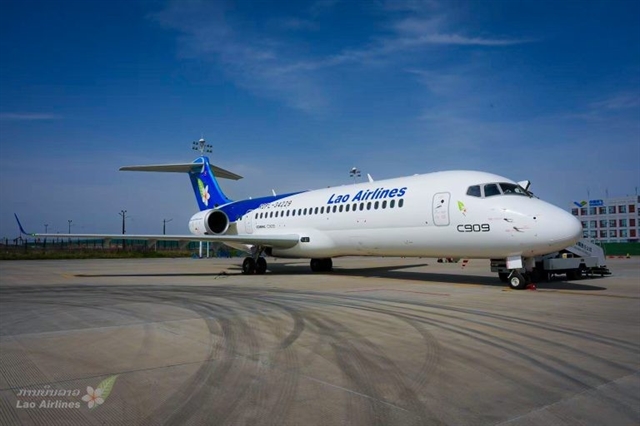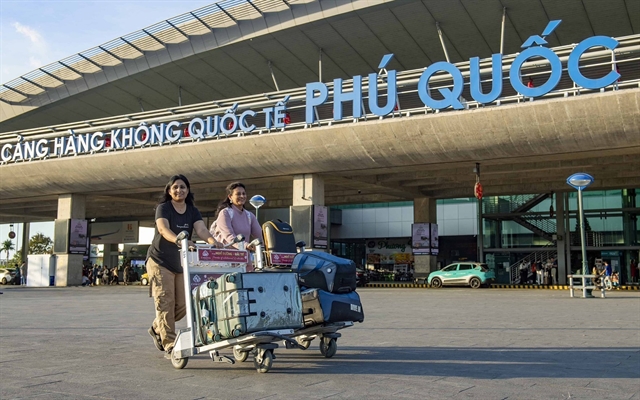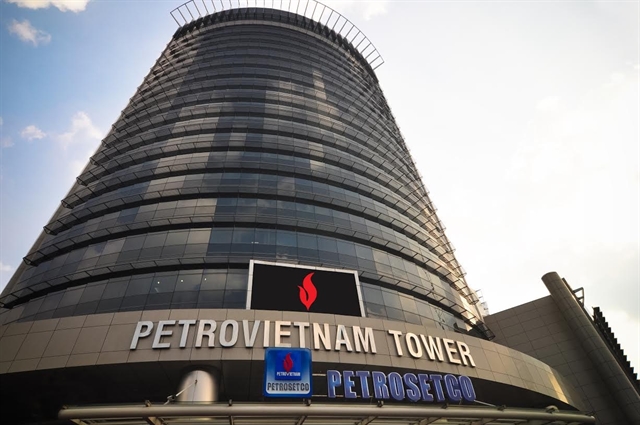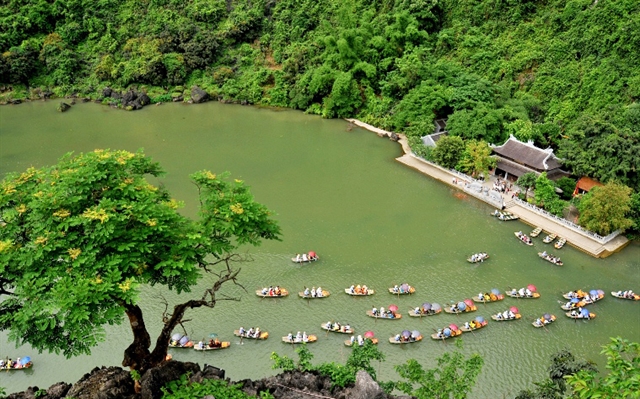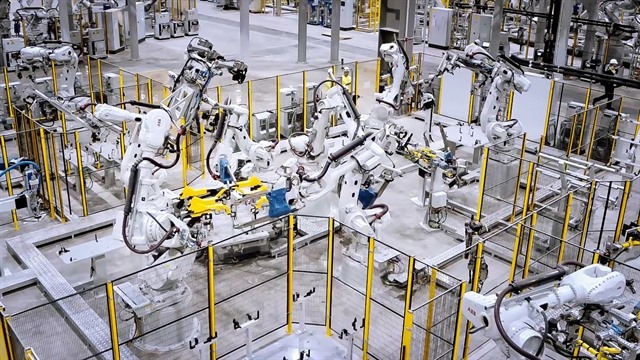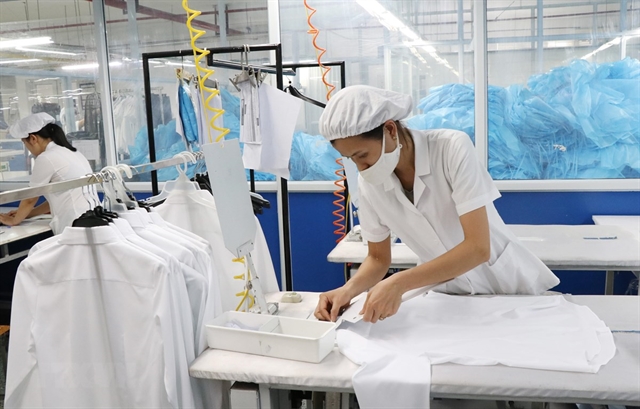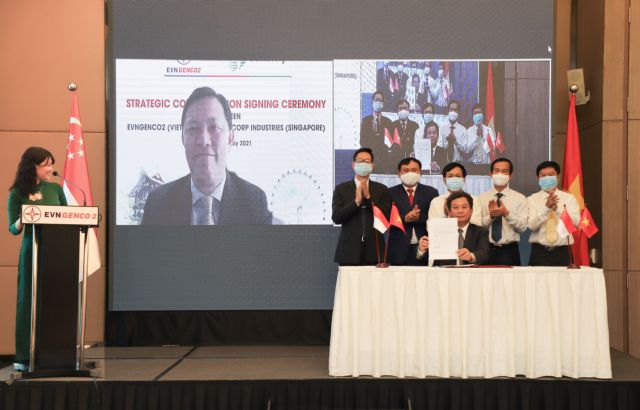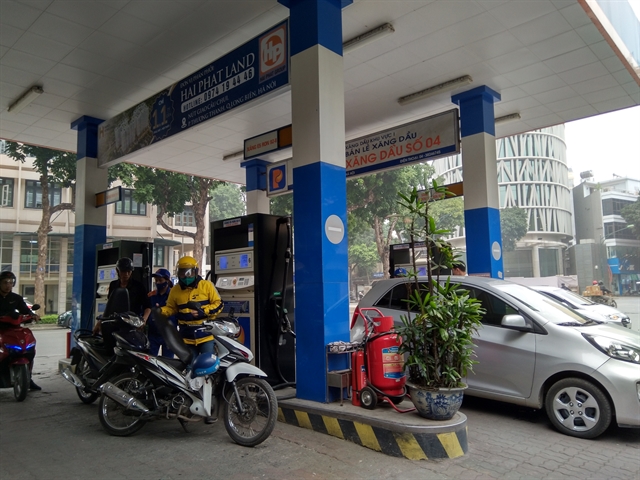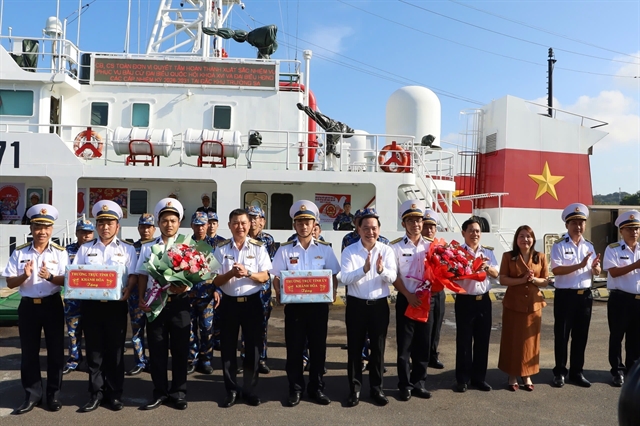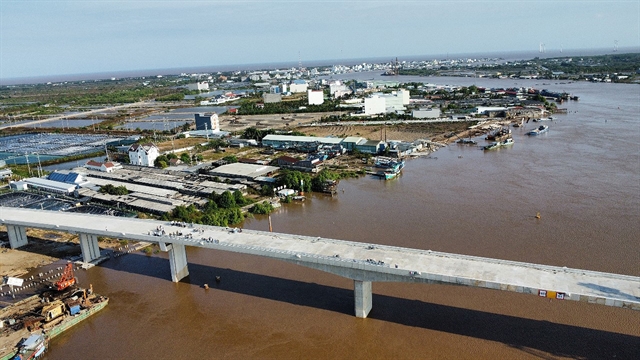
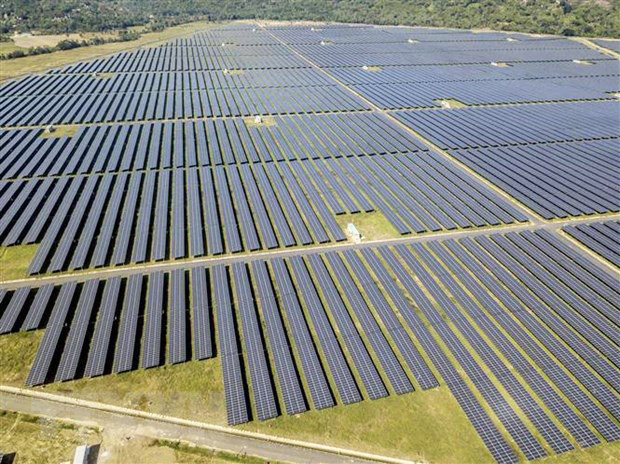
|
| The VNĐ6 trillion (US$260 million) Sao Mai-An Giang Solar Power Plant in An Giang Province, with a total capacity of 210 MWp. — VNA/VNS Photo Thanh Sang |
MEKONG DELTA — Taking advantage of its natural conditions and investment attraction policies, the Cửu Long (Mekong) Delta has become a destination for investors in renewable energy projects.
The region has great advantages to develop the renewable energy sector, including wind, solar, biomass and gas thermal power.
Eleven of 13 cities and provinces in the region hold great potential for solar energy development, with average solar radiation of 1.387-1.534 Kwh per year.
Coastal areas in the region have high potential to develop wind power, with wind speeds of 6.5-7m per second.
Dương Vũ Nam, deputy director of Cà Mau Province’s Department of Industry and Trade, said the southernmost province of Cà Mau has a coastline of 254 kilometres which creates potential for wind power development.
The province also has high solar radiation and a large area of production forests, providing about 225,000 - 300,000 tonnes annually of waste wood from wood production and processing.
Waste wood is an abundant raw material used for the development of biomass power.
The long coastline, estuaries and islands also create favourable conditions for building warehouses, ports, gas pipelines and storage and regasification systems to develop gas-fired power projects.
More than 40 domestic and foreign investors are keen on investment opportunities in wind, solar and biomass power in the province.
The province has 11 wind power plants with a total capacity of 675MW, and a 24MW biomass project is under construction.
It has approved a new 200MW wind power project expected to be put into operation by 2023.
It has also proposed that the Ministry of Industry and Trade add 26 windpower projects with a total capacity up to 14,614MW to the National Electricity Development Plan in the 2021-2030 period.
Sóc Trăng Province also has great advantages for developing wind and solar power projects.
The province has a 72km-long coastline with an average wind speed of 8.3 metres per second. It receives an average of 2,300-2,480 hours of sunshine per year.
Twenty windpower projects with a total capacity of 1,435 MW have been approved in the province, deputy director of the provincial Department of Industry and Trade, Lê Thành Thanh, said.
Nine of them under construction will be connected to the national power grid after completion.
Phạm Quốc Hùng, director of Quốc Vinh Sóc Trăng Wind Power Co.,Ltd, said that his company’s windpower plant is being built in Sóc Trăng Province’s Vĩnh Châu township, with an expected output of 30MW in its first phase.
The plant is expected to start running on a trial basis in August and begin commercial operation in September.
Removing obstacles
The delta’s renewable energy sector has great potential but obstacles exist.
Dương Vũ Nam said the slow implementation of renewable energy projects has been caused by difficulties in changes of land-use purpose, site clearance, and construction-related administrative procedures.
Cà Mau has about 300,000 hectares of aquaculture. The surfaces of aquatic breeding bonds could be used to install solar power panels. However, there are still no guidelines relating to this type of investment.
The provincial Department of Industry and Trade has called on agencies to issue specific guidelines on this type of investment, as well as create favourable conditions to attract investors.
The province is speeding up work on installing 220kV and 110kV transmission lines to connect the renewable energy projects with the national grid.
Sóc Trăng Province’s Department of Industry and Trade has helped investors remove difficulties to speed up the implementation of 20 windpower projects.
The department has urged building two110kV transmission lines and a 220kV transformer station to link to the windpower projects. It is working with other agencies to develop models combining solar power production with agricultural or aquaculture production. — VNS



